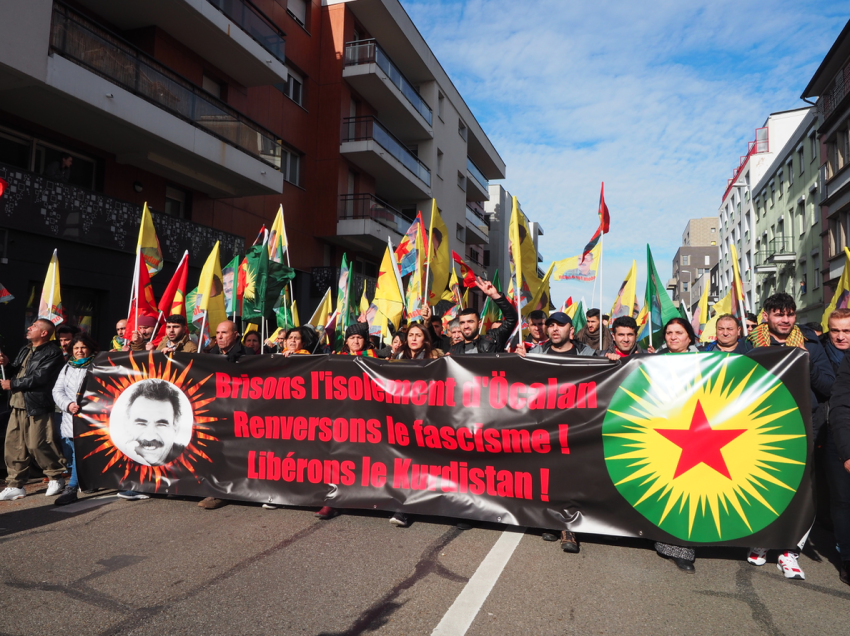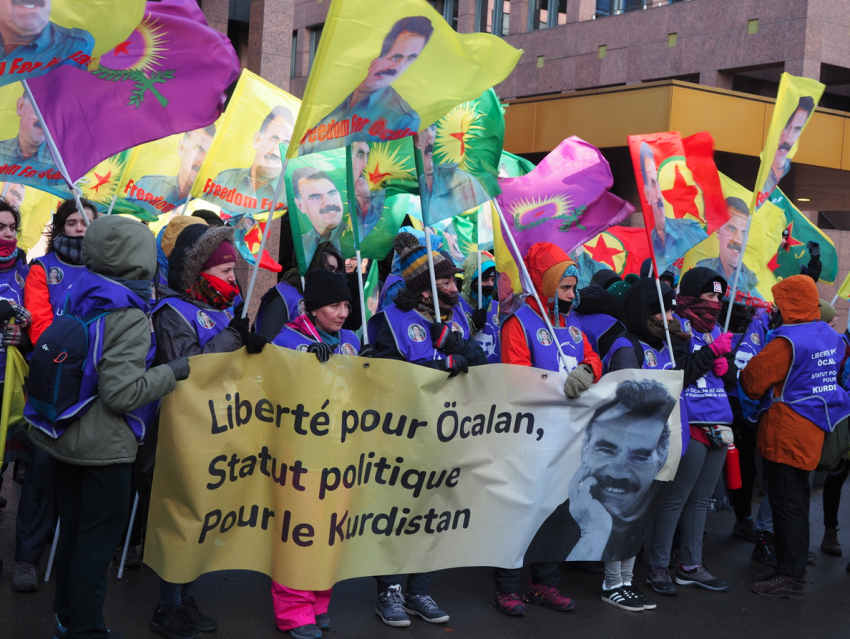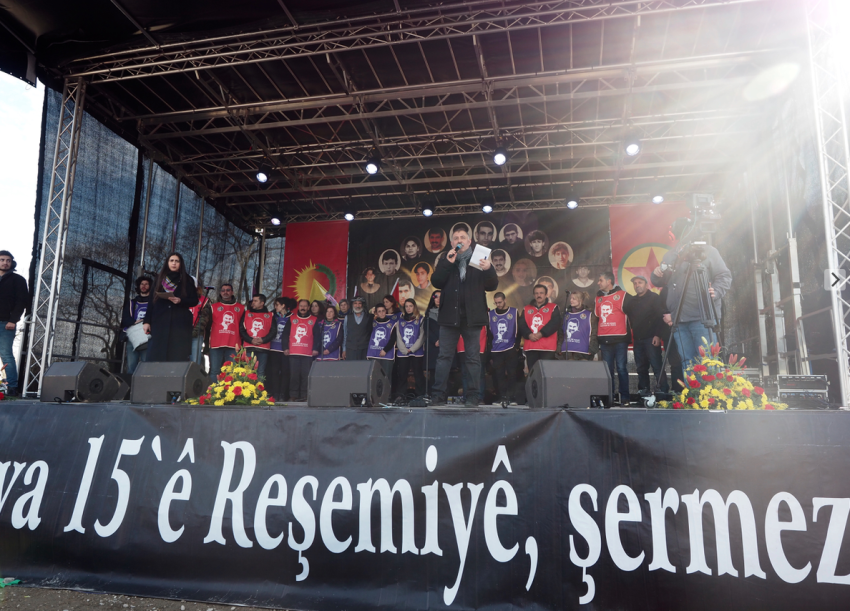Thousands of Kurds and their international supporters converged for a huge protest in Strasbourg, France on February 15, to demand the release of Kurdish leader Abdullah Ocalan. Ocalan has been imprisoned by the Turkish state for the past 21 years, after being illegally abducted in Kenya with the help of the CIA.
Marches and rallies also took place around the world on the same day.
The Strasbourg march was the culmination of the 2020 Long March for freedom for Ocalan. It brought together three streams in Europe: the internationalist contingent (in which I participated) which marched from Luxembourg; the Kurdish youth contingent, which marched from Frankfurt, Germany; and the Kurdish writers and intellectuals contingent, which marched from Geneva, Switzerland.

Separate, but concurrent Long Marches also took place in other countries, including Greece and Italy.
The internationalist contingent included 120 people (mostly youth) from Australia, Ecuador, Mexico, South Africa, Spain, Catalonia, Euskadi, Aragon, Asturia, the Canary Islands, Italy, Canada, the United States, Sweden, Norway, France, Germany, Switzerland and Portugal. It was warmly welcomed in Strasbourg. The biggest proportion came from Catalonia and other parts of the Spanish state.
Its composition reflected the strong attention and solidarity that the Rojava Revolution in Syria is attracting among anti-capitalist youth in Europe, and in particular, in insurgent Catalonia.

The rally was addressed by Kurdish movement leaders; Suad Mustafa, the mother of assassinated Rojava politician Hevrin Khalaf; former British Member of European Parliament Julie Ward; a representative of the French Communist Party; and representatives from the three contingents.
Kurdistan People’s Congress (Kongra Gel) co-chair Remzi Kartal told the rally: “Although our leader Apo [Ocalan] has been under isolation and torture in Imrali [prison] for 21 years, he has continued a great resistance.
“The conspirators wanted to destroy the Kurdish freedom movement and implement their projects for the Middle East by capturing our leader Apo. However, during this period, our leader developed a new paradigm, politics and resistance.
“We will never forget the conspirators, we will never forgive. Our people will always resist the conspiracy, as it has done until now."

Kartal hailed the recent decision by the Belgian Court of Cassation, declaring that the Kurdistan Workers' Party (PKK) is not a terrorist organisation, but a legitimate non-state political actor. In response, “Kurdish people living in Europe will expand the political, diplomatic and legal struggle”.
“2020 will be a strategic year for us. It will be a year in which we will step up the struggle for the abolition of the isolation on our leader Apo and for freedom and status for Kurdistan.”

The Internationalist contingent’s representative Marina told the rally we had marched “for the freedom of Abdullah Ocalan and to stand shoulder to shoulder against fascism.
“We have seen Kobane, Afrin and the current [Turkish] attacks on North and East Syria. We have seen the destruction of ancestral heritage, historical places and villages by the Turkish fascist state.
“But we have also been inspired by the resistance defeating Daesh and the creation and implementation of a sustainable society that is based on egalitarian, feminist, anti-fascist and anti-capitalist ideals. One based on respect for human rights, ecology and empowerment of women.
“Today we stand side by side with the Kurdish people,” she added. “We will be your mountains!”

The internationalist contingent spent five days marching and took the message of solidarity to Luxembourg, Thionville, Metz, Nancy and Strasbourg. Marchers were welcomed by local mayors and deputy mayors and spent the night in council sports centres. On two nights, marchers stayed with local Kurdish families.
Apart from marching and distributing flyers, the contingents held seminars on the Kurdish struggle, shared stories of freedom struggles in their various homelands and engaged in cultural activities, including lots of Kurdish dancing.

A veteran of the anti-apartheid struggle in South Africa, Sidney Luckett, who was part of the internationalist contingent, shared the story of the close solidarity links between Nelson Mandela and Ocalan.
Mandela had arranged for Ocalan to have political asylum in post-apartheid South Africa and Ocalan was on his way there when he was abducted by Turkish secret service operatives in Nairobi on February 15, 1999.
Luckett, who had been detained under the apartheid regime, invited the other “internationalistas” to imagine “how history might have turned out if Ocalan had made it to South Africa”.
Cold, windy and sometimes wet conditions did not deter the Long March. The Kurdish youth contingent faced some police harassment in Germany, but the other two contingents had a peaceful run.